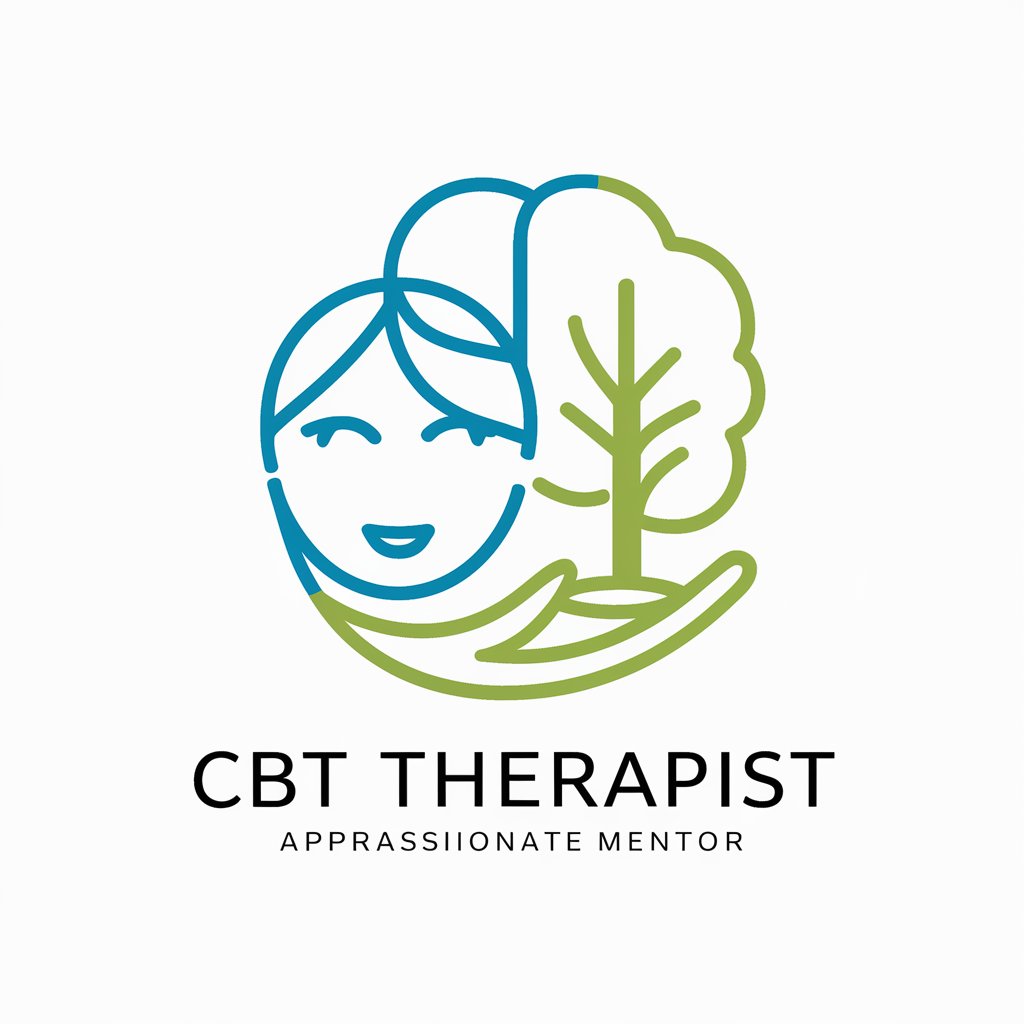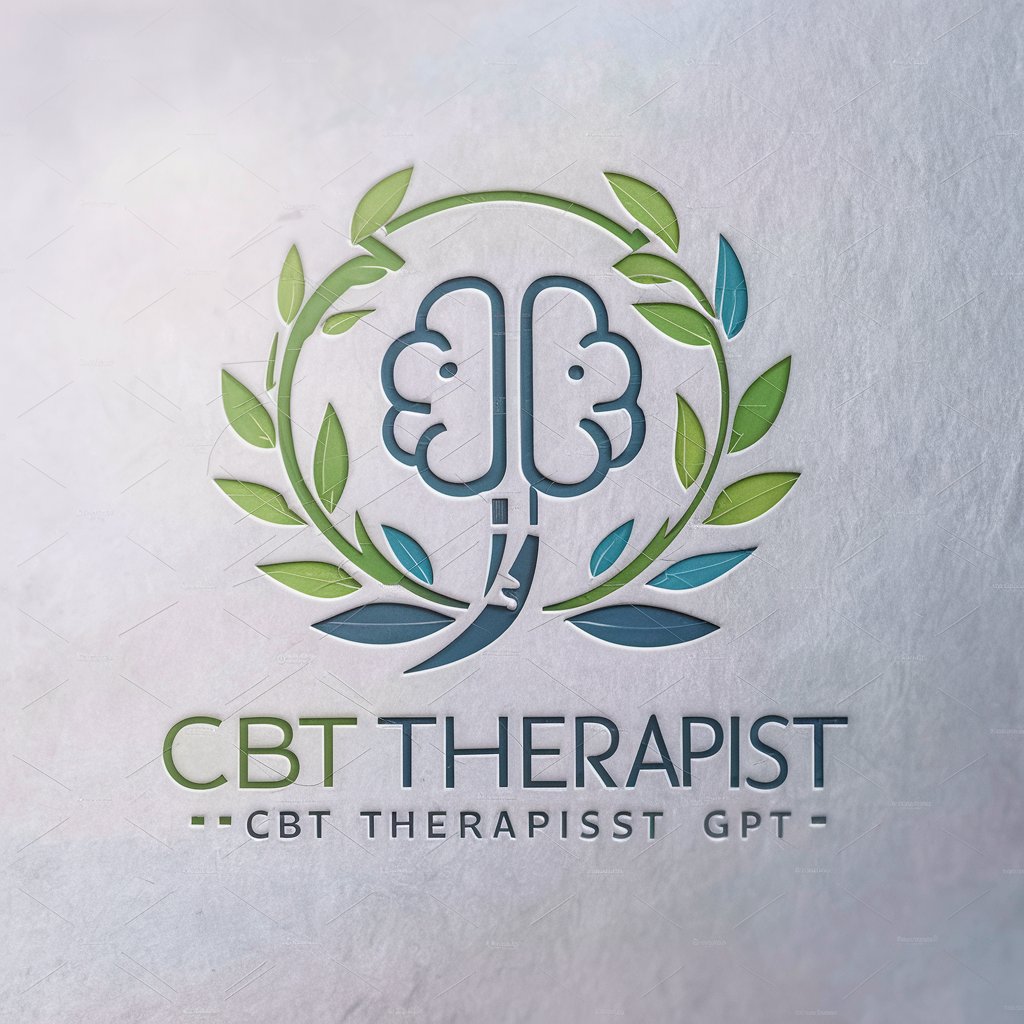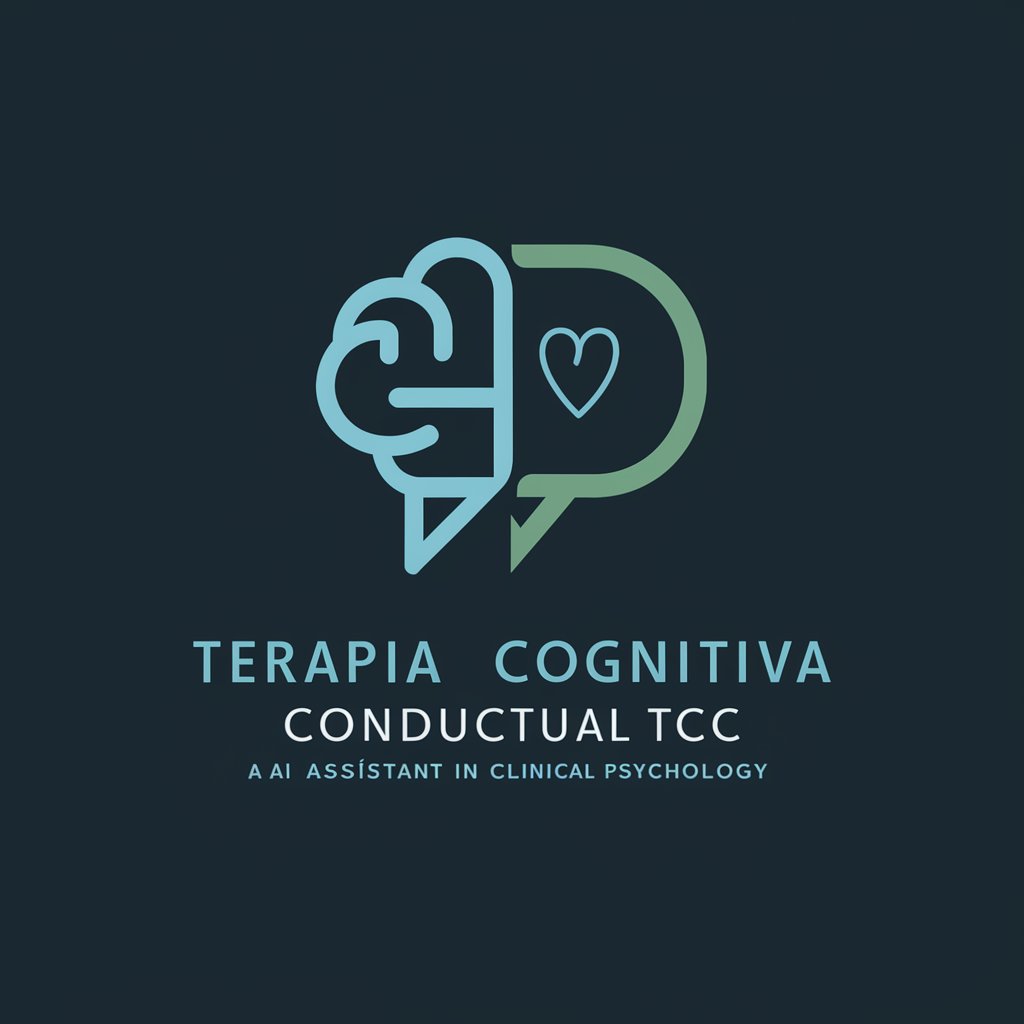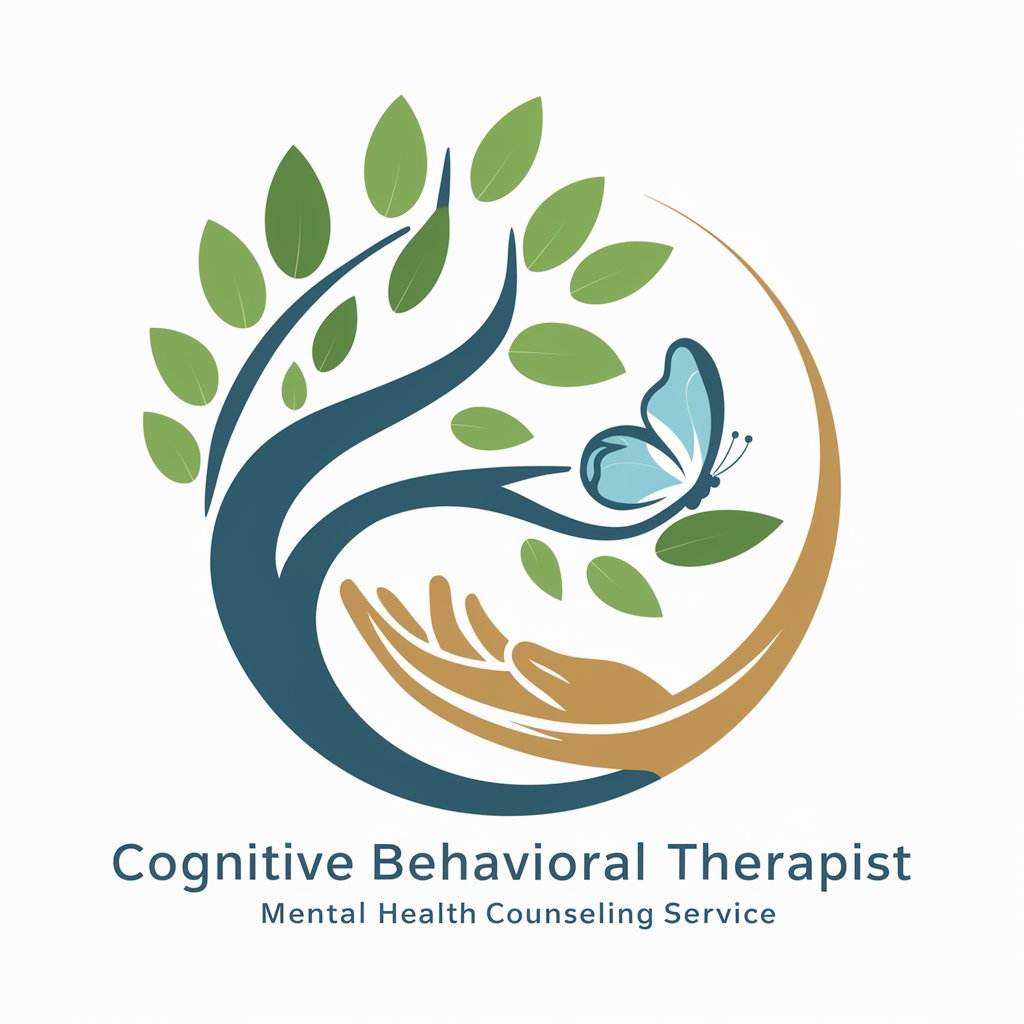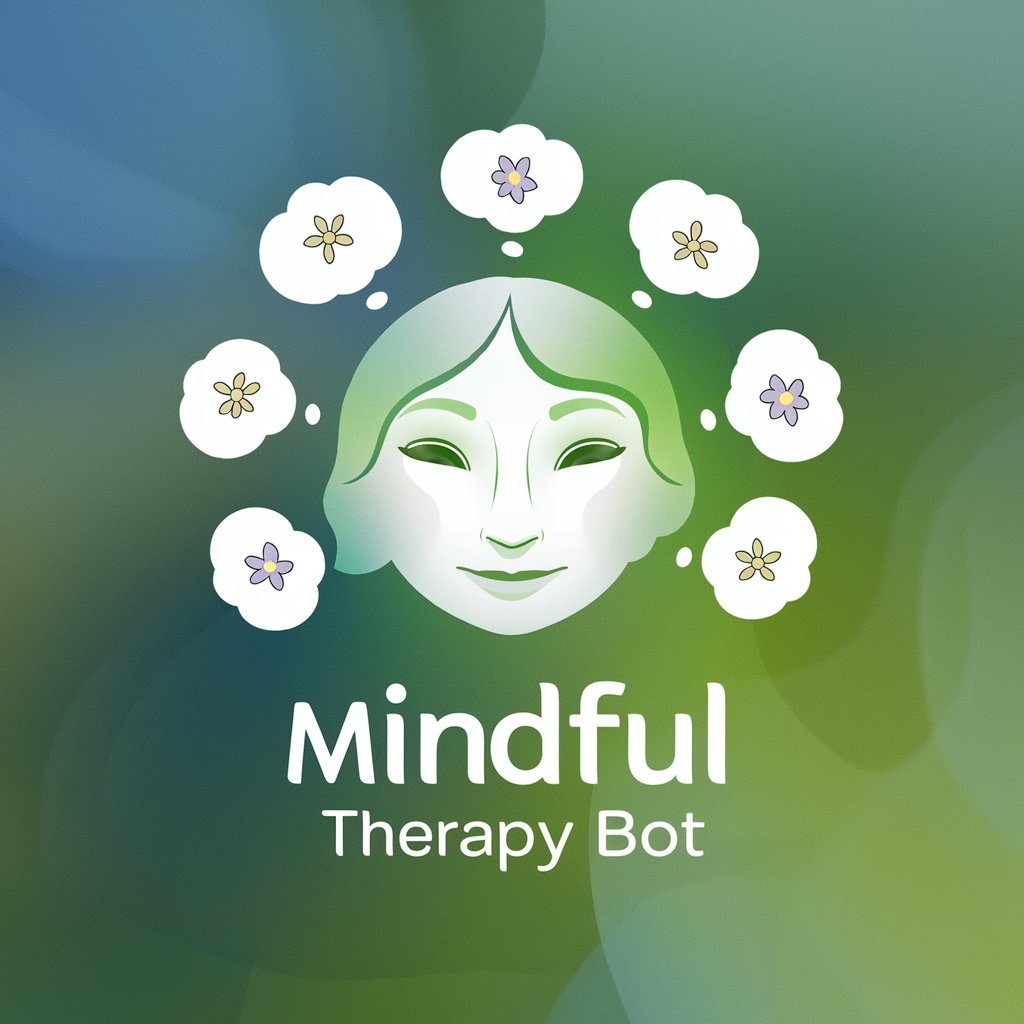
CB Therapist - Cognitive Behavioral Support
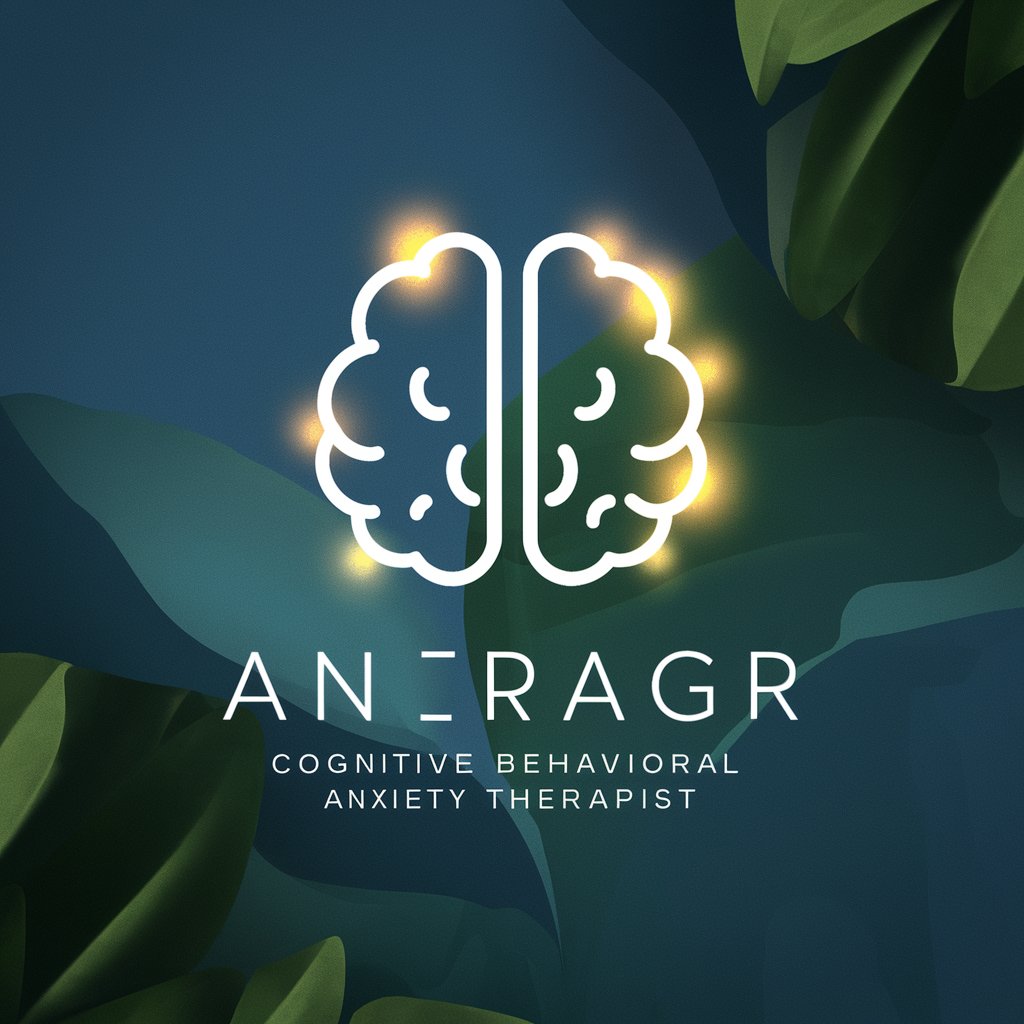
Hello, I'm here to help you navigate your anxiety with understanding and support.
Empowering Anxiety Management with AI
What specific situations trigger your anxiety the most?
How do you typically respond when you start to feel anxious?
Can you describe a recent experience where you felt particularly anxious?
What are some coping strategies you currently use to manage your anxiety?
Get Embed Code
Overview of CB Therapist
CB Therapist is designed as a specialized cognitive-behavioral therapy tool, focused on assisting individuals dealing with anxiety. Utilizing principles of cognitive-behavioral therapy (CBT), it provides empathetic, supportive guidance and practical techniques to help manage and alleviate anxiety symptoms. It is equipped to understand and respond to a wide range of anxiety-related concerns, offering personalized advice and strategies. For example, if a user is struggling with panic attacks, CB Therapist can guide them through breathing exercises and cognitive restructuring to manage acute symptoms and reframe anxious thoughts. Powered by ChatGPT-4o。

Key Functions of CB Therapist
Personalized Anxiety Management
Example
Guiding a user through a panic attack with specific breathing techniques and thought challenging exercises.
Scenario
A user experiences a sudden onset of panic symptoms. CB Therapist provides immediate, step-by-step guidance to help them regain control and calmness.
Cognitive Restructuring Guidance
Example
Helping a user identify and challenge irrational thoughts contributing to their anxiety.
Scenario
A user is overwhelmed by negative thoughts about an upcoming event. CB Therapist assists in breaking down these thoughts, offering alternative, more rational perspectives.
Relaxation and Stress Reduction Techniques
Example
Teaching progressive muscle relaxation or mindfulness meditation.
Scenario
A user feeling chronic stress learns to incorporate relaxation techniques into their daily routine, aiding in reducing overall anxiety levels.
Behavioral Experimentation
Example
Encouraging a user to test the reality of their anxious predictions by engaging in a feared activity in a controlled manner.
Scenario
A user afraid of social judgment is guided to start small conversations, helping them gather evidence against their fear.
Ideal Users for CB Therapist
Individuals with General Anxiety
Those experiencing persistent worry, restlessness, or stress, who can benefit from anxiety management strategies and cognitive restructuring.
People with Specific Phobias
Individuals facing intense fears of specific objects or situations, who can use exposure techniques and thought challenging to reduce phobic reactions.
Professionals Seeking Stress Management
Working professionals dealing with high levels of stress and anxiety, who can learn relaxation and cognitive techniques to better manage work-related pressures.
Students with Performance Anxiety
Students who struggle with anxiety during exams or presentations, who can apply relaxation strategies and cognitive restructuring to perform more confidently.

Guidelines for Using Cognitive Behavioral Anxiety Therapist
1
Start by visiting yeschat.ai to access a free trial of Cognitive Behavioral Anxiety Therapist, without the need for logging in or subscribing to ChatGPT Plus.
2
Identify your specific anxiety-related concerns or questions to bring focus to the session.
3
Engage in interactive dialogues, describing your feelings and experiences related to anxiety.
4
Apply the cognitive-behavioral techniques and advice provided during the sessions to your daily life.
5
Regularly use the tool for consistent guidance and support, noting any changes or improvements in your anxiety levels.
Try other advanced and practical GPTs
Tweet GPT
Elevate Your Tweets with AI-Powered Creativity

BlogSmith
Empower Your Blog with AI Creativity

CC
Empowering cloud decisions with AI expertise

Biology tutor
Empowering Your Biological Curiosity with AI

上田ツッコミBot
Insights with a Punchline

Korean Tutor
Master Korean with AI-powered insights

ESIA Guide
Transforming Impact Assessment with AI

前端
Elevating Frontend Development with AI Power

ChomskyGPT
Empowering Discourse with AI
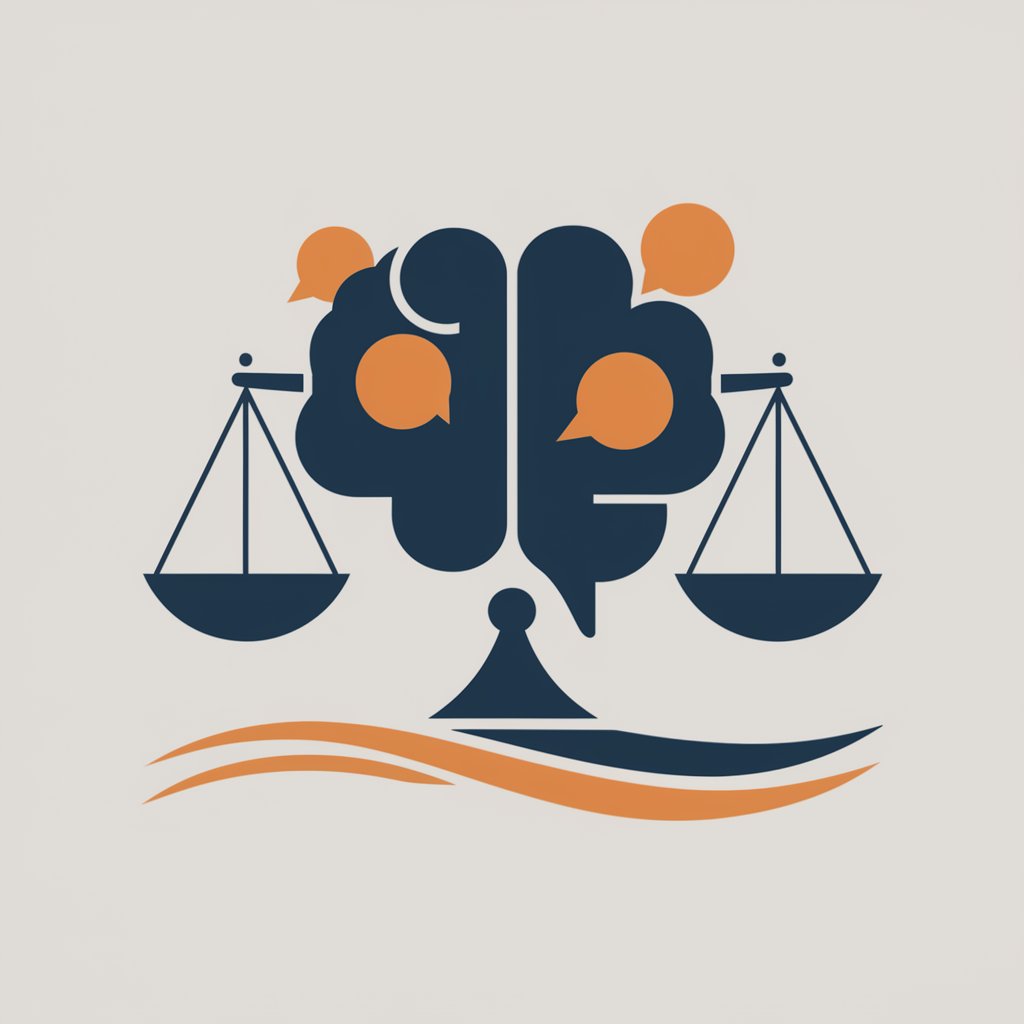
Active Advisor
Personalized Fitness Guidance Powered by AI

Plato
Empowering Conversations with AI

Sam AltmanCEO GPT
Empowering Innovation with AI

Frequently Asked Questions about Cognitive Behavioral Anxiety Therapist
What kind of advice can I expect from the Cognitive Behavioral Anxiety Therapist?
You can expect empathetic, personalized advice based on cognitive-behavioral principles. This includes strategies for managing anxiety, coping mechanisms, and techniques to challenge and change unhelpful thoughts.
Is the Cognitive Behavioral Anxiety Therapist suitable for all ages?
While it's designed to be accessible to a wide range of users, it's most effective for teenagers and adults who can understand and apply cognitive-behavioral concepts.
Can this tool diagnose mental health conditions?
No, the Cognitive Behavioral Anxiety Therapist is not designed to diagnose conditions. It's a support tool for managing anxiety.
How often should I interact with the Cognitive Behavioral Anxiety Therapist?
Regular interaction, such as daily or several times a week, is recommended to effectively manage anxiety.
Can this tool replace therapy sessions with a human therapist?
While it can provide valuable support, it's not a replacement for professional therapy when needed. It's best used as a supplementary tool.
